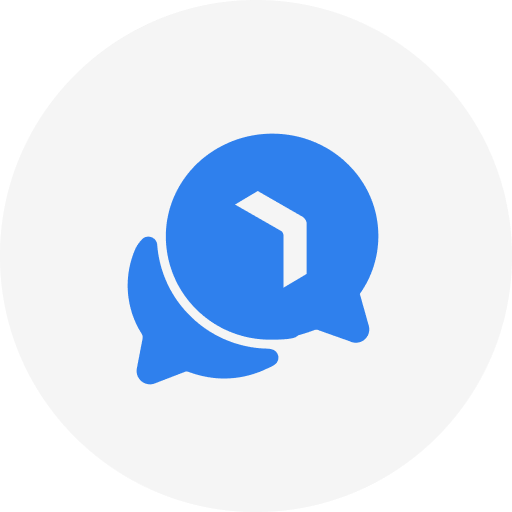A direct correlation exists between call center agent coaching, customer experience, and customer loyalty. Are you building a coaching culture in your contact center?
Whether we go to work every day in a contact center or work for a technology provider supporting them, we in the contact center space devote the lion’s share of our time and energy trying to improve the customer experience. Rightfully so, it is our finished product. Contact center agents are the key ingredient in delivering the customer experience, and call center agent coaching a crucial factor in determining call center agent performance and aptitude.
Call center agent coaching informs what they say, when they say it, and how they say it. It determines if they resolve the customer’s issue, how they resolve it, and how quickly they resolve it. Finally, it seeks to ensure the agent is following the rules – complying with applicable regulations protecting the customer’s sensitive information.
Call Center Agent Coaching Impacts Brand Loyalty
Customer satisfaction and loyalty are cultivated over a series of experiences, but you’d be hard pressed to find any customer touchpoint more important than the call center. A customer-initiated interaction with an agent occurs when they have a question, have encountered a problem, or perhaps when they want to make a purchase. Their issue is one they haven’t been able to resolve themselves through whatever customer self-service mechanisms are available to them, or for whatever reason they’re just more comfortable with human interaction. Often, their need is immediate or their challenge acute.
Regardless of scenario the agent’s mastery of product, process and active listening determines the customer experience - and customer experience directly correlates with customer loyalty.
Coaching Is More Than Feedback
Anyone with an opinion can give feedback. Only coaches coach.
One common trait of a good coach is their inclination to go beyond simply passing along feedback - pointing out what an agent did right or wrong. Instead, they probe the ‘whys’ and the ‘hows’ – why an agent’s instincts, words or actions might’ve been wrong in a particular circumstance and how they can avoid making the same mistake again. This is why active listening is particularly crucial in one-on-one coaching sessions.
Call center coaching is not about giving negative feedback or outlining positive results. There's a qualitative distinction between coaching and feedback; a difference often lost, and the words used interchangeably. As an example, you may hear or read a lot about excessive Average Handling Time (AHT) and the need to reduce it, but there’s much less conversation about working with agents to drill down to the root causes of their high AHT and creating an action plan that addresses those root causes.
In the case of AHT, feedback tells an agent they need to get faster. Effective coaching is uncovering an issue – their difficulty navigating a specific topic in their knowledge base, for instance - which, in turn, extends call times. Digging deeper, it’s discovering why the agent is struggling with that topic and teaching them techniques to improve. Coaching sessions are essential in this process.
Coaching the Coaches
Coaches don’t simply emerge; they need to be developed and nurtured. Unless the person ultimately responsible for agent training – perhaps a supervisor, customer experience manager or HR person – learns how to coach, then ‘coaching’ is just a fancy way of saying 'providing feedback.' The good news is organizations don't have to have a formal ‘train the trainer’ program to develop good coaches. It only takes one person who’s passionate about wanting to push beyond the employee feedback model and help others improve their skills by uncovering their inner aptitudes and potential.
Alan Fine is an acclaimed performance coach and best-selling author of multiple books, including You Already Know How to Be Great: A Simple Way to Remove Interference and Unlock Your Greatest Potential. In that book, he posits that performance improvement does not come from gaining new knowledge; it comes from getting rid of the "interference" that gets in the way of using the expertise and capacity we already have. He argues that top performance only comes when the performer (the agent), not the coach, proactively accepts responsibility for results. The coach’s job, then, is to act as a de facto work therapist, asking agents the right questions and encouraging the agent to do most of the talking and engage in self-discovery.
In short, good coaches don’t need to earn advanced degrees or spend weeks in professional development seminars every year. They just need to have an aptitude for empathy and an ability to actively listen to and engage the agent in conversation, and to follow a few best practices.
Inertia is probably the biggest hurdle for organizations thinking about instituting effective call center coaching sessions. After all, monthly, direct-to-the-point feedback-oriented sessions demand much less of leaders than weekly, exploratory coaching conversations. That’s just a fact, and there’s no denying that an agent may find the motivation to shorten their average handling time after being told they must. The question is, without proper coaching, how long will any improvement last, and at what cost does it come? For instance, is a shorter AHT coming at the expense of the customer satisfaction? Are agents leaving customer issues unresolved in their rush to end a call? Targeted coaching can address these issues effectively.
Coaching agents – diving down into root causes and changing root-cause behaviors – comes with a longer-term payoff. On the upside, that payoff is more significant, and it lasts. What if, with coaching, your agents could shorten AHT while simultaneously raising the quality of the customer experience they deliver? What if your agents felt more engaged and satisfied with their jobs, and they stayed at their jobs longer? That’s your payback for coaching. Effective coaching can help agents improve their performance and acquire new skills.
Three points to remember when inaugurating a coaching culture at your contact center:
- Let the agent do most of the talking. If the supervisor’s talking, they’re not coaching.
- Ask questions that get to the root cause of the behavior or performance issue being discussed.
- Assist the agent in building an action plan based on the root causes you and the agent have identified. The action plan must be agent driven.
Coaching call center agents is a proactive approach to enhancing workforce engagement.
AI Tools and Automated Capabilities Support Call Center Agent Coaching
Quality Management tools within your workforce optimization software should provide coaches with a deep reservoir of data and analytics to identify areas of the customer experience that need improvement, and enable coaches to identify which agents would benefit from additional call center agent training in those areas. Generative AI is revolutionizing this data gathering and analytics function.
- Call Recording/Screen Capture: Auto Call Recording is the starting line for Quality Management and Call Center Agent Coaching. After all, you can’t coach agents on how to improve future interactions if you haven’t captured, analyzed and learned from past interactions. The same can be said for ensuring agents are protecting your organization and safeguarding your customers’ private information.
- Speech Analytics/emotion detection: This tool reads customers’ emotions during customer interactions by examining variations in pitch or tone, interruptions, periods of silence and more.
- ChatGPT-like questions and answers: Evaluate 100% of your interactions on virtually any criteria you identify. For instance, you can ask this Quality Management tool if agents are properly greeting the customer at the beginning of each call. Instead of a manager manually listening to random calls that only cover 2 to 3% of the interactions the system automatically scores every interaction on this criteria.
- Auto Clustering Algorithms: Scan call data for themes that may not have been pre-defined. Coaches can leverage this feature without having to define themes or categories in advance.
- Statistical Comparison: Allows coaches and managers to compare dates, agents, agent groups, queries, and voice channels in order to identify and train agents on how to correct common problems.
Artificial Intelligence and automation are already profoundly enhancing call center agent training, and adoption of these technologies will only accelerate. Call center coaching through AI tools can revolutionize workforce management and improve call center performance.
Think about how your contact center approaches educating your agents. Are you providing limited tactical instructions in the form of feedback about a particular call or issue, or are you building long-lasting agent skills and reinforcing positive behaviors through data and analytics-based coaching?
There’s a time and place for both. After all, in the heat of battle – during a customer interaction gone wrong – a struggling agent doesn’t have time for nuanced dialogue; they need real-time feedback. Ultimately, though, only good call center agent coaching can get to the root of chronic issues impacting your long-term contact center and agent performance. Targeted coaching sessions ensure that agents will continuously improve their performance and adapt to changing customer needs.


